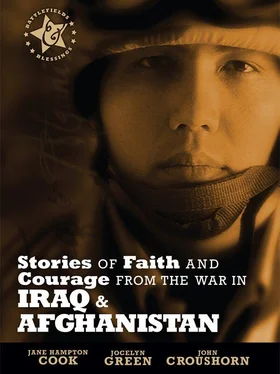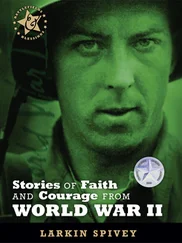There is a saying that PTSD (now referred to as PTSS or Post-Traumatic Stress Syndrome), goes away when the victim is around other vets. Do soldiers stop suffering from PTSS around comrades or is it that the events are more understood and the stress reduced when they are with those who share the experience?
It is human nature to feel more comfortable around those who are familiar with our experience. That’s true for PTSS regardless of whether it’s from combat experience or sexual abuse. That’s why we have groups for PTSS. There is a significant comfort that comes from not having to explain yourself or why an experience was traumatic.
Let me emphasize that someone should not base a decision about whether or not to seek help on the way he or she feels or behaves around others who went through the same experience. PTSS is the way those experiences effect a soldier outside that circle of comrades and friends. It is the way it affects his or her relationships with family and friends, coworkers, and supervisors. If those relationships are suffering or if one’s ability to function in civilian life is affected by traumatic experiences then that person should seek help.
It’s not how the veteran relates to other veterans but rather how he relates to his family and his obligations once he returns home, that is the question. This is one area the veteran should lean upon family. Trust their impressions. Comrades may be unable to tell whether or not a fellow soldier’s experiences are affecting the ability to function. A soldier’s family however, knows their loved one. Family members can more easily detect dysfunction and adjustment stress.
Prayer:
Please bring your healing to my loved one or friend or fellow church member who is suffering from PTSS. May he/she receive the professional and personal support that is needed.
“Dear friend, I pray that you may enjoy good health and that all may go well with you, even as your soul is getting along well.” (3 John:2)
December 8
THE IMPORTANCE OF DEBRIEFING
Don Richards, Psychologist Counseling Military Veterans
One soldier shared this story:
We hot-washed everything. Debriefing immediately after an action was a definite force multiplier. That meant when we returned from an operation we talked about what happened the good, the bad and the ugly. It was essential that we not lose the value of experiences that we paid for with blood, sweat and a great deal of effort. There was another benefit though; everyone understood what happened more clearly. Those close to people who were wounded weren’t allowed to sulk in personal pity. They realized they did their job and the injury wasn’t due to their actions or inactions. It enabled them to get back up on the horse. Reality was we were going back out tomorrow and our heads had to be in the game, and not replaying yesterday’s events.”
Cognitive rehabilitation is the process of evaluating an event and framing it in a progressively more healthy way. It is one of the primary tools in treating Post Traumatic Stress Syndrome (PTSS). The reality is the earlier it is done the more profound the ability to deal with traumatic events. Units that advocate early debriefing with an emphasis on cognitive rehabilitation will see fewer PTSS casualties.
Early debriefing does appear to change the impact of traumatic events. I have seen this and try to incorporate it not only among my military experience but in the emergency department. If something bad happens it is very worthwhile to take my nurses and techs involved and let them know that they did everything right and they weren’t responsible for something bad happening.
I would have to say that from my experience that early debriefing is the most valuable tool in preventing damage from traumatic events. I don’t have the luxury of being with them immediately after an event. If early debriefing was done effectively I wouldn’t be unraveling significant psychological issues and trying to break down defensive postures my patients have established over the years. Perhaps I would only be focusing on more practical issues of adjustment. If debriefing was done well it would diffuse a great deal of distress and issues involved in posttraumatic stress syndrome.
Prayer:
Dear Lord, please help those in combat situations today to receive the early debriefing they need. Please protect them from PTSS.
“I will stand at my watch and station myself on the ramparts; I will look to see what he will say to me, and what answer I am to give to this complaint.” (Habakkuk 2:1)
December 9
CONCERN AND HELP SO NECESSARY
Don Richards, Psychologist Counseling Military Veterans
This soldier’s wife told her story:
Our neighbors were always nice to me. I do not believe they had any idea how hard it was keeping things going alone. The struggle was beyond what I thought I could bear. I did not know how to keep going. Occasionally someone would offer to help. At first I didn’t feel comfortable accepting the help, but as the months passed by it became easier, especially from those who had gone through a similar situation. The help offered was inconsistent and although it was a nice gesture, it was brief, and rarely enough to feel like I had a real break.
It is important to initiate contact and reach out to families separated by deployment. They need time, and help with daily tasks, and often their responsibilities leave no time to call and ask for help. The contact can be as simple as a phone call, a loaf of pumpkin bread in the mailbox, a card on the door, ribbon on the house, mowing the grass without being asked, food on the doorstep. Anything that reminds spouses at home that they are not alone is support. If they have children, plan to entertain the kids, or get a gift certificate to a spa and watch the kids while they get pampered.
Many people ask how they can help? I tell them whatever you do for your family do for them. If you wash your car or your spouse’s car then go and wash their car. If you cut the grass go and do that. If you cook then prepare a meal. Don’t ask, just do. They will not tell you what they need.
One man from the church stated:
It got to the point that I couldn’t tell her I was going to cut the grass, because she would drop what she was doing and cut the grass before I arrived. I would wait until I turned on their street and then call.
Our churches also should support these families in the same way as it does when a member is undergoing severe trial. It’s much the same as somebody who has a family member who is dying with cancer. Recognizing the trial and praying openly for them is very comforting and empowering.
During the observance of Veterans Day and Memorial Day, it’s very important to emphasize the service and sacrifice of these families. They give a unique gift to our country and need to be recognized. The recognition is not for their benefit alone, it is also helpful to guide the focus of the fellowship and stimulate the support that is so needed by these families.
Prayer:
Dear God, please use me in my church to help raise awareness, support, and practical assistance for the families of soldiers serving overseas.
“David replied, ‘No, my brothers, you must not do that with what the LORD has given us. He has protected us and handed over to us the forces that came against us. Who will listen to what you say? The share of the man who stayed with the supplies is to be the same as that of him who went down to the battle. All will share alike.’ David made this a statute and ordinance for Israel from that day to this.’” (1 Samuel 30:23–25)
December 10
LOOKING TO GOD
Читать дальше












